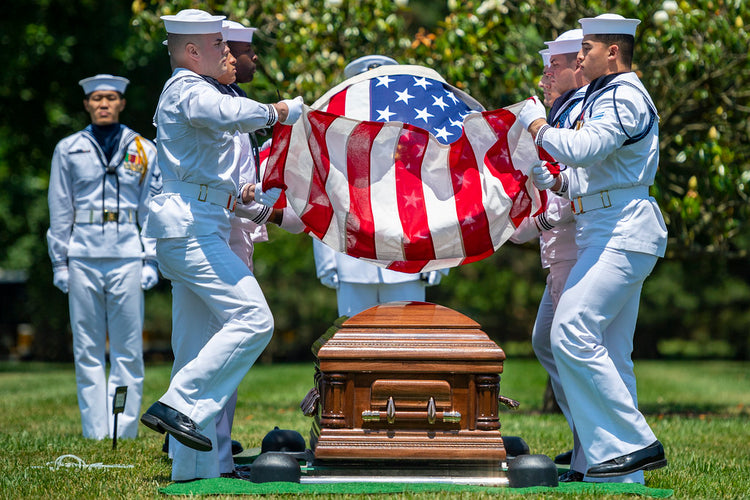A military funeral is a solemn and respectful tribute to those who have served their country with dedication and sacrifice. In this blog post, we will delve into the intricate details of military funerals, shedding light on the customs, traditions, and the profound significance of these ceremonies.
The Honor and Tradition of Military Funerals:
A military funeral is a time-honored tradition that serves as a final salute to members of the armed forces who have passed away. It is a poignant and dignified way to commemorate their service and sacrifices. Key aspects of military funerals include:
Folded Flags: The American flag plays a central role in military funerals. It is carefully folded into a triangle and presented to the next of kin as a symbol of the nation's gratitude for the deceased's service.
Taps: The haunting sound of "Taps," a bugle call played by a bugler or on a recorded device, is a poignant moment in military funerals. It is a melody that signifies the end of the day and serves as a farewell to the departed.
Funeral Processions: Military funerals often involve a formal procession, with the casket carried on a caisson or a hearse. Processions may include a band, color guard, and military personnel.
Firing Salutes: A rifle party or honor guard often fires a three-volley salute to honor the deceased. The sound of the volleys is a powerful and somber reminder of the individual's service.
Flag Presentation: The flag, which draped the casket during the service, is carefully folded and presented to the next of kin. This is a highly symbolic and emotionally charged moment.
Military Personnel Involvement: Military funerals are typically conducted with military personnel and honor guards, who perform various ceremonial roles during the service.
Benefits of a Military Funeral:
Military funerals offer several important benefits:
Respect and Recognition: They provide a dignified and heartfelt recognition of the deceased's service to the nation.
Support for the Family: Military funerals offer support and solace to the bereaved family, acknowledging their loss and sacrifice.
Patriotism and Tradition: These ceremonies uphold the rich traditions of the military and instill a sense of patriotism and appreciation for the sacrifices made by service members.
Honoring All Branches: Military funerals are not limited to one branch of the military. They can be conducted for Army, Navy, Air Force, Marines, and Coast Guard personnel.
Personalization: While there are standard protocols for military funerals, families can often personalize the service to honor the individual's life and service.
Eligibility for Military Funerals:
Not all military veterans are automatically eligible for military funerals. Eligibility is determined by factors such as active duty service, honorable discharge, and specific service periods. Veterans can pre-arrange their eligibility with the U.S. Department of Veterans Affairs.
Conclusion:
Military funerals are a poignant and dignified way to pay tribute to those who have served their country. These ceremonies are steeped in tradition and honor, providing a meaningful and respectful farewell. They not only acknowledge the service and sacrifice of the deceased but also offer solace and support to their families during a challenging time.





